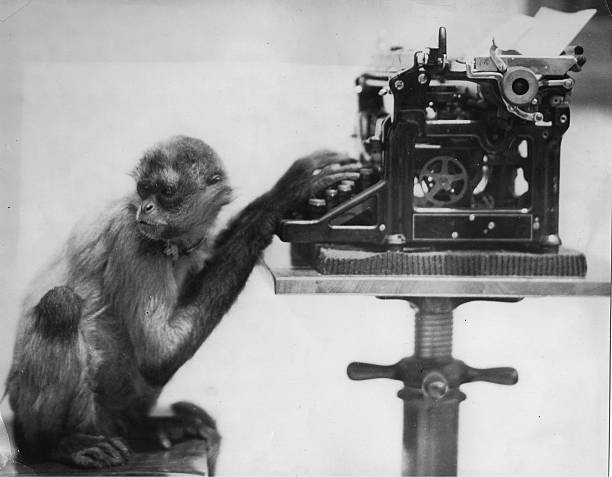The Infinite Monkey Theorem suggests that a monkey typing randomly on a typewriter for an infinite time could eventually produce the complete works of Shakespeare.
While this thought experiment illustrates the principles of probability and randomness, a recent study reveals a stark reality: the time required for such an outcome far exceeds the lifespan of our universe.
Researchers at the University of Technology Sydney, Associate Professor Stephen Woodcock and Jay Falletta, examined the theorem under realistic constraints.
Unlike the original theorem, which assumes infinite monkeys or time, their study focused on a finite number of monkeys and the universe’s estimated lifespan of approximately 10^100 years.

Their calculations, which assumed a standard keyboard with 30 keys, indicated that while a single chimpanzee has a 5% chance of typing the word “bananas” in its lifetime, the likelihood of even 200,000 chimpanzees producing Shakespeare’s entire works—comprising around 884,647 words—is virtually nonexistent before the universe’s end.
This humorous yet serious exploration places the Infinite Monkey Theorem alongside other paradoxes, including Zeno’s paradox and the St. Petersburg paradox, challenging the concept of infinity in practical scenarios.
The researchers conclude that regardless of typing speed improvements or increased chimp populations, the notion of monkeys generating coherent literary works remains improbable.
In an age dominated by generative AI, this study invites reflection on creativity and consciousness.
It raises philosophical questions about the nature of originality and whether true creativity can emerge from random chance, further complicating our understanding of these concepts in the context of a finite universe.

